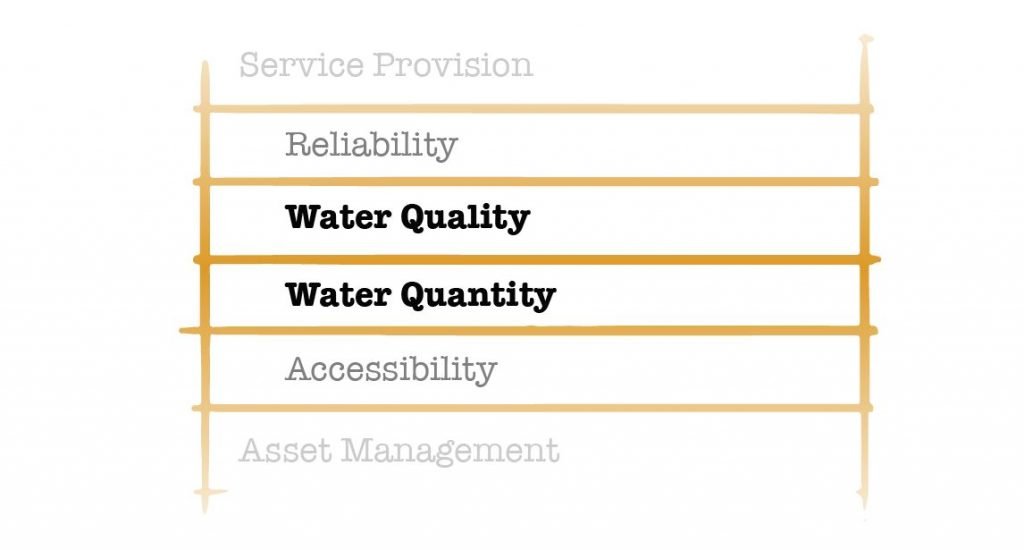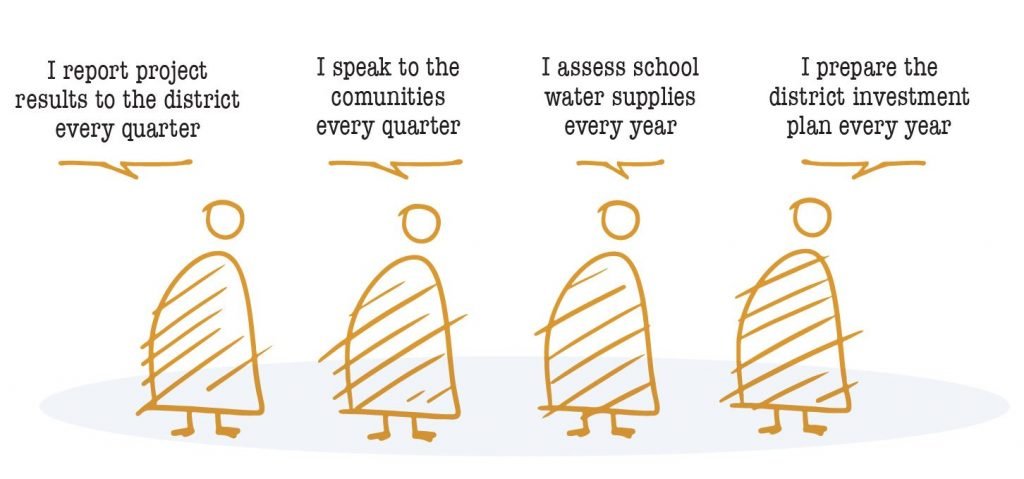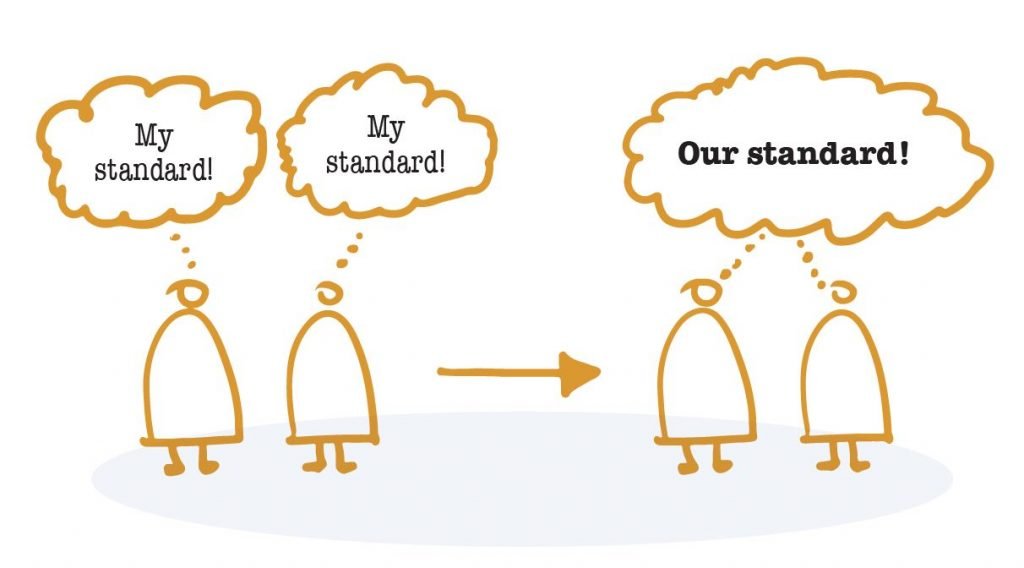This blog is based on the fact sheet on Actionable Guidance for National Governments: Harnessing Water Point Data for Improved Water Services
National governments have a crucial role in providing guidance and support for the collection and use of water point data. Beyond the need for coverage statistics at the national level, districts and partners require water point data to plan and act to improve services. Good quality national water point monitoring data are also a catalyst for faster private and public investments. More investments are needed since the Sustainable Development Goals are not going to be met by 2030 at the current rate of investment.
We wrote previously about three universal lessons for improving water point monitoring, however, there are also recommendations from our research on the use of water point monitoring to improve water services that are specific to national governments.
Recommendation 1: Incorporate service level metrics that are useful to local governments
Help local governments and service authorities achieve results by incorporating service level and sustainability metrics that go beyond functionality into the national indicator framework. Provide monitoring results on paper where connectivity, power, and digital competency are limited.

Service level monitoring in Ghana
The Community Water and Sanitation Agency of Ghana developed the “Framework for Assessing and Monitoring Rural and Small Town Water Supply Services in Ghana” to measure the performance of service providers and the support they receive from districts. In the process, the national District Monitoring and Evaluation System (DiMES) database of the Community Water and Sanitation Agency was updated to include the new framework and linked to Akvo FLOW for district-level mobile data collection and a mobile phone-based hand-pump spare parts sale service (SkyFox) for communities.
Recommendation 2: Establish clear roles and responsibilities for routine monitoring
Establish clear institutional roles and responsibilities for the routine monitoring of water points at specific times on an annual basis, including the roles of local government and implementers. Tools such as the 12 components national WASH M&E system strengthening tool can be used for this purpose.

Institutional roles in Uganda
The Government of Uganda, together with partners, established clear institutional roles and responsibilities for sector stakeholders. They developed an annual reporting framework, enabled recurrent data collection at district level, and perform Joint Sector Reviews.
Recommendation 3: Use standard approaches and technologies; publish data
Use standard approaches and technologies, and then publish the data. This will make water point monitoring more robust because it reduces dependency on any single tool, database or website. This can become critical when resources are constrained and during emergencies.

Using Standard Approaches and Technologies in Latin America
A joint initiative from Latin American countries, Sistema de Información de Agua y Saneamiento Rural (SIASAR), created a basic, updated and comparable information tool on the rural water supply and sanitation services. It is used in Panama, Honduras, Nicaragua, Dominican Republic, Costa Rica, Oaxaca (Mexico), Peru, Ceara (Brasil), and Bolivia. SIASAR is an open system that can be applied in other countries.
Reference
The White Paper “Harnessing Water Point Data” presents the details of what water point data are, how they are used, and how they can be used more effectively to measure services and water resources, strengthen the enabling environment, and improve coordination. It also discusses the impact of recent innovations such as the remote monitoring of water points using mobile technology.
The White Paper can be downloaded here: Harnessing Water Point Data to Improve Drinking Water Services

Comments (0)